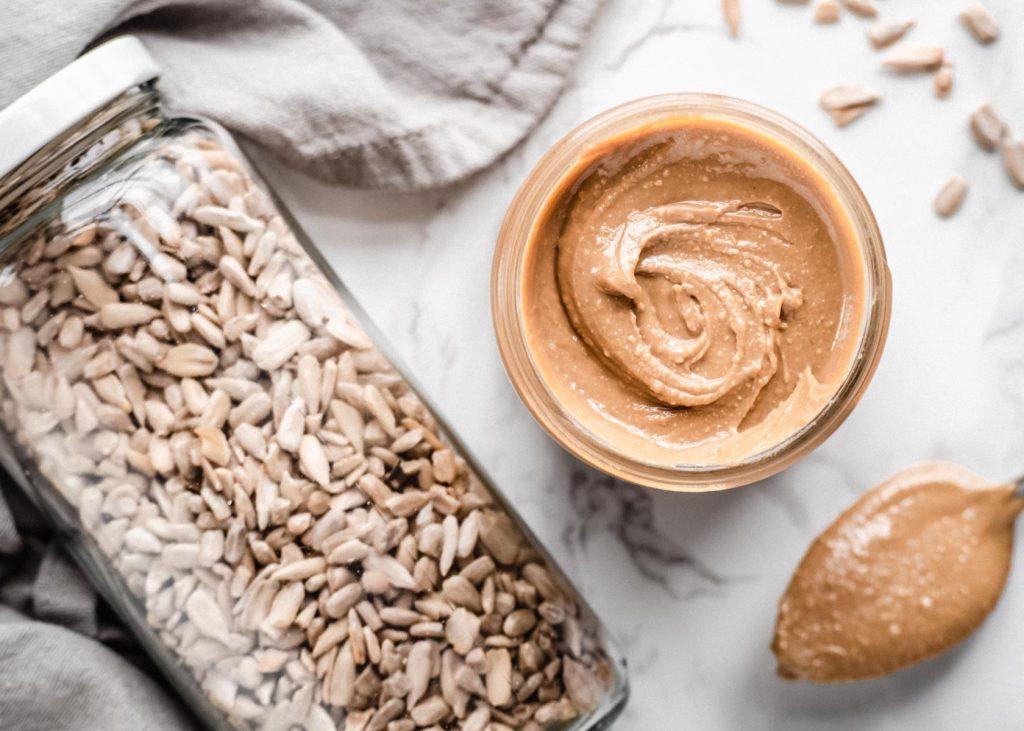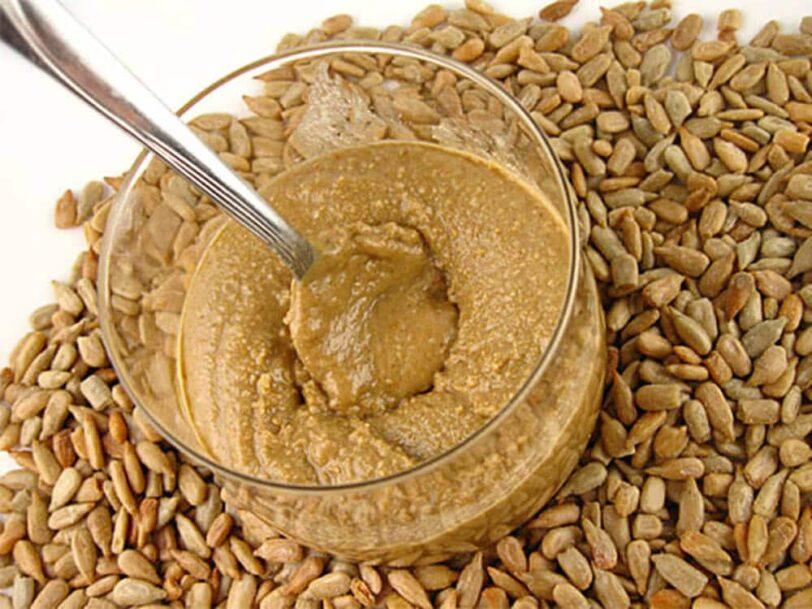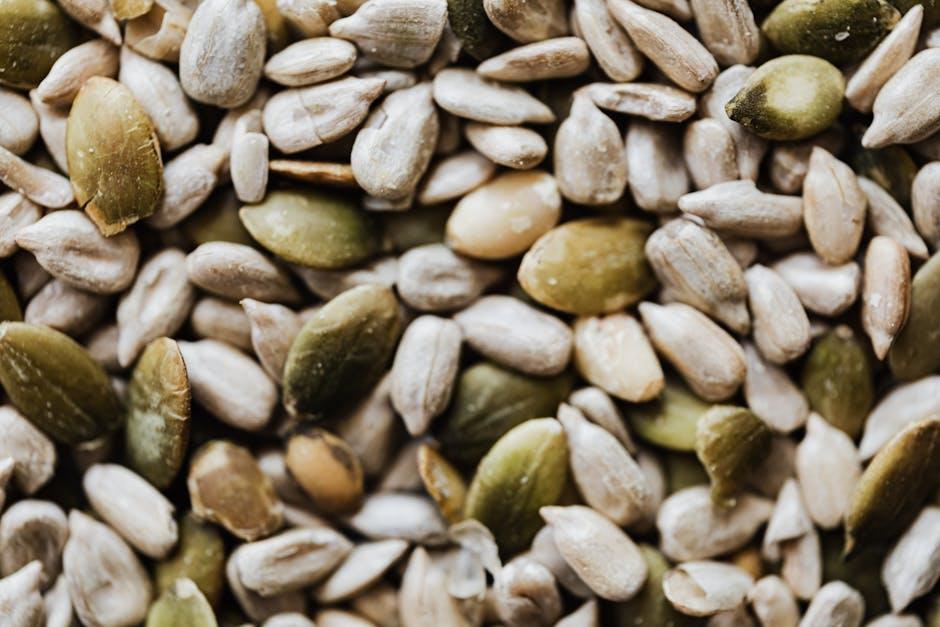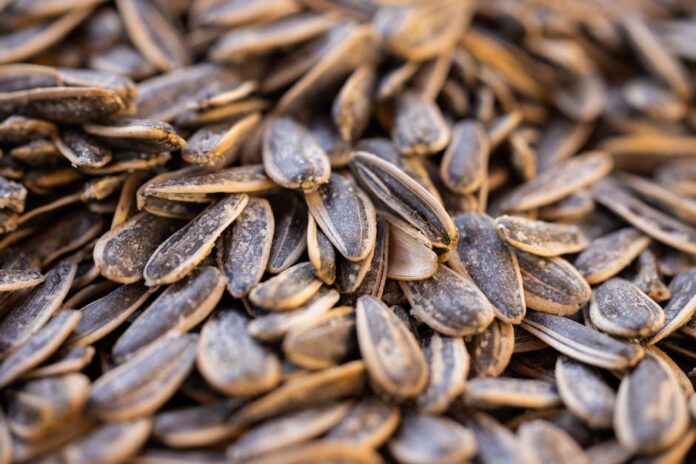In a world where food allergies and sensitivities are increasingly common, the quest for safe and satisfying alternatives has never been more critically important. Enter raw sunflower seed butter: a creamy,versatile spread that not only tantalizes the taste buds but also sidesteps the drawbacks associated with conventional nut butters. Perfectly tailored for those with nut allergies or anyone seeking a plant-based protein source, this delightful concoction transforms meals and snacks with it’s rich, earthy flavor. Whether you spread it on toast, blend it into smoothies, or use it as a dip for fruits and veggies, raw sunflower seed butter stands out as an allergen-free alternative that holds its ground in flavor and nutrition. As we delve into the world of this remarkable nut butter alternative, we’ll explore its myriad benefits, nutritional profile, and creative ways to incorporate it into your diet.
Exploring the Nutritional Benefits of Raw Sunflower Seed Butter
Raw sunflower seed butter is a rich source of essential nutrients that make it an excellent addition to a balanced diet. This creamy alternative offers a variety of health benefits, appealing notably to those seeking allergen-free options. The key nutritional elements of raw sunflower seed butter include:
- Healthy Fats: Packed with polyunsaturated and monounsaturated fats, this nut butter supports heart health and provides sustained energy.
- Protein Power: With approximately 6 grams of protein per two-tablespoon serving, it aids in muscle repair and growth, making it a great post-workout snack.
- Vitamins and Minerals: Rich in vitamin E, magnesium, and selenium, it promotes immune function and skin health while aiding in cellular repair.
- Fiber: It contains dietary fiber, which supports digestive health and keeps you feeling full longer.
Additionally, sunflower seeds are naturally cholesterol-free and low in saturated fats, making the butter a heart-pleasant choice. Here’s a quick comparison table highlighting the nutritional profile of raw sunflower seed butter:
| Nutrient | Per 2 Tbsp (32g) |
|---|---|
| Calories | 180 |
| Protein | 6g |
| Fat | 16g |
| Carbohydrates | 6g |
| Fiber | 2g |
by incorporating raw sunflower seed butter into your diet, you not only enjoy a appetizing spread but also a powerhouse of nutrition that can help meet your dietary needs without the risk of common allergens associated with traditional nut butters. Its versatile flavor enhances a range of dishes, from smoothies to savory recipes, ensuring you reap the benefits of its wholesome profile in exciting ways.

Comparing Raw Sunflower Seed Butter to Traditional Nut Butters
When it comes to nut butters, many are familiar with the creamy spreads made from almonds, cashews, or peanuts. However, raw sunflower seed butter is emerging as a remarkable alternative, especially for those with nut allergies or sensitivities. Unlike traditional nut butters, which can provoke allergic reactions in some individuals, raw sunflower seed butter is made from sunflower seeds, offering a safe option for people looking to avoid common allergens. The taste is pleasantly nutty with a hint of earthiness, making it an excellent addition to smoothies, sandwiches, or straight from the jar.
In terms of nutrition, raw sunflower seed butter boasts an remarkable profile that rivals its nutty counterparts. Here’s a comparison of some key benefits:
| Nutritional Component | Raw Sunflower Seed Butter | Almond Butter |
|---|---|---|
| Protein | 6g per 2 tbsp | 7g per 2 tbsp |
| Fat | 18g per 2 tbsp | 16g per 2 tbsp |
| Fiber | 2g per 2 tbsp | 3g per 2 tbsp |
| Vitamin E | 4.6mg per 2 tbsp | 1.2mg per 2 tbsp |
Aside from being allergen-friendly,raw sunflower seed butter is also rich in antioxidants and essential nutrients.It provides a good source of vitamin E, an important nutrient for skin health and immune function. Additionally, it’s packed with healthy fats and plant-based protein, making it a well-rounded choice for snacks or meal prep.for those seeking a unique and health-conscious alternative to traditional nut butters, raw sunflower seed butter is a tasty, nutritious option worth considering.

Creative Culinary Uses for Allergen-Free Nutrition
Raw sunflower seed butter is a versatile ingredient that can be incorporated in a variety of dishes while ensuring thay remain allergen-free. Here are some innovative culinary uses:
- Smoothies and Shakes: add a spoonful of sunflower seed butter to your favorite smoothie for a creamy texture and a boost of protein.
- Sandwich Spreads: Use it as a spread on sandwiches or wraps, layering with fruits like bananas or strawberries for a delicious, nutritious meal.
- Baking Ingredient: Substitute sunflower seed butter for traditional nut butters in baking recipes, like cookies or brownies, enhancing flavor while accommodating those with nut allergies.
Moreover, sunflower seed butter doubles as a delightful dip and topping.Consider these tasty options:
- Fruit Dip: Mix sunflower seed butter with honey or maple syrup for a delightful dip served alongside apple slices or celery sticks.
- Granola Topping: Drizzle it over yogurt or oatmeal, offering a rich, nutty flavor that complements your morning bowl.
- Energy Bites: Combine sunflower seed butter with oats, seeds, and a hint of sweetness to create no-bake energy bites—perfect for a quick snack on the go!

Guidelines for Selecting the Best raw Sunflower Seed Butter
Choosing the right raw sunflower seed butter involves more than just picking a jar off the shelf. Start by checking the ingredient list: the best products should contain only sunflower seeds and, perhaps, a pinch of salt.Avoid those with added sugars, preservatives, or hydrogenated oils, as these can detract from the health benefits and pure flavor of the sunflower seeds. Additionally,look for certifications such as organic or non-GMO,which signal higher quality and more enduring farming practices.
Consider the texture and flavor profile that suits your palate. Some brands may offer creamy varieties, while others may present a more textured option. It can be beneficial to read customer reviews for insights into both taste and consistency. Lastly, always check for storage recommendations. Ideally, raw sunflower seed butter should be stored in a cool, dry place or refrigerated after opening to maintain freshness. Keeping these factors in mind will help ensure you select a high-quality product that meets your dietary needs and preferences.
To Wrap It Up
raw sunflower seed butter emerges as a versatile and nutritious alternative to traditional nut butters, inviting a wider audience to enjoy the creamy delight without the worry of allergens. Its rich taste, coupled with a plethora of health benefits, makes it an ideal choice for those seeking a wholesome, plant-based spread.Whether slathered on a slice of whole grain bread, blended into smoothies, or used as a dip for fruits and veggies, raw sunflower seed butter can seamlessly integrate into a variety of culinary creations. As the demand for allergen-free options continues to grow, this delightful seed butter paves the way for inclusive eating experiences, allowing everyone to indulge in the sheer joy of nut-free spreads. So, next time you’re exploring the aisles of your local grocery store or perusing an online market, consider giving raw sunflower seed butter a try—it may just become your new favorite pantry staple.






